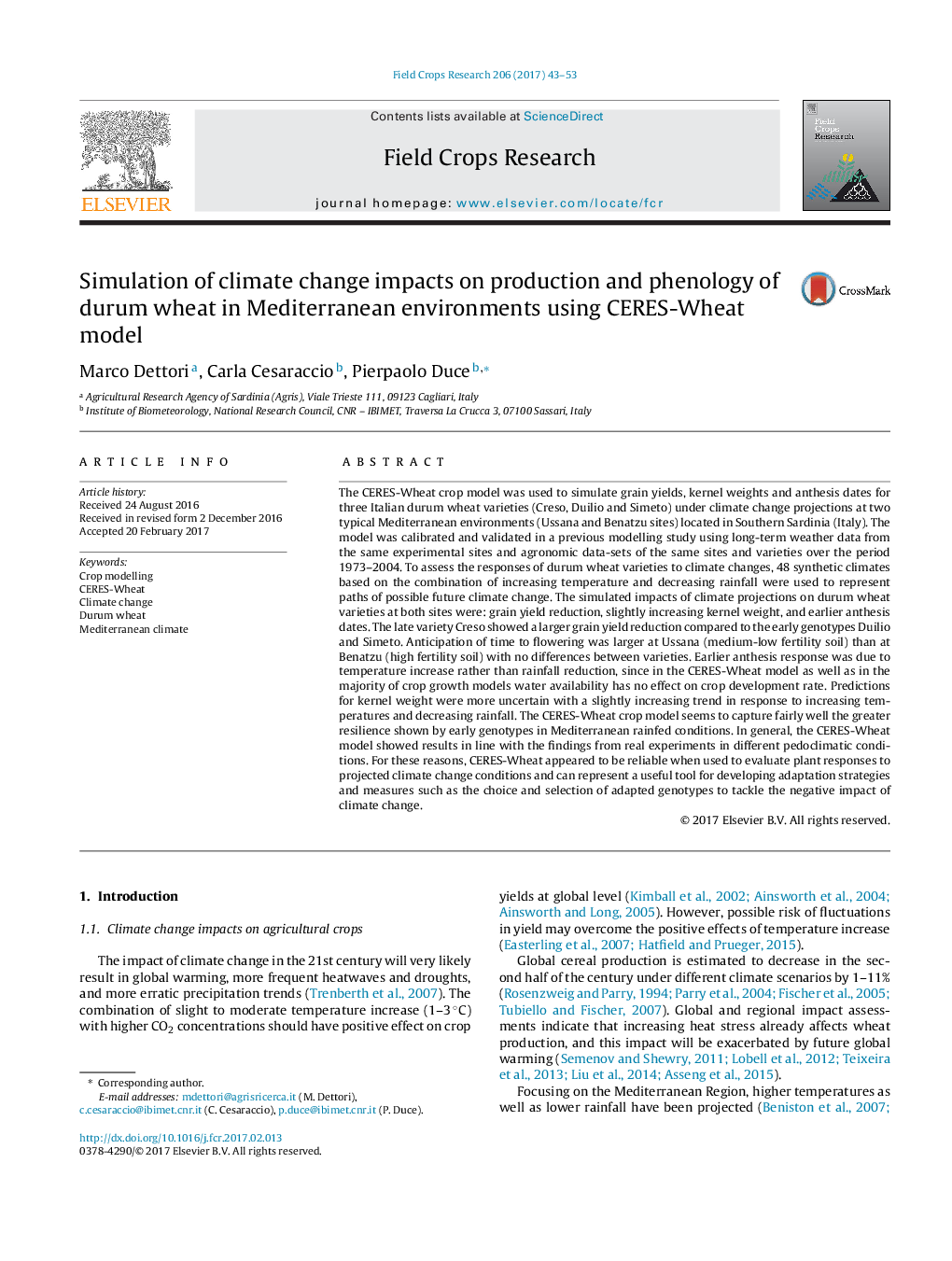| کد مقاله | کد نشریه | سال انتشار | مقاله انگلیسی | نسخه تمام متن |
|---|---|---|---|---|
| 5761524 | 1624657 | 2017 | 11 صفحه PDF | دانلود رایگان |
عنوان انگلیسی مقاله ISI
Simulation of climate change impacts on production and phenology of durum wheat in Mediterranean environments using CERES-Wheat model
دانلود مقاله + سفارش ترجمه
دانلود مقاله ISI انگلیسی
رایگان برای ایرانیان
کلمات کلیدی
موضوعات مرتبط
علوم زیستی و بیوفناوری
علوم کشاورزی و بیولوژیک
علوم زراعت و اصلاح نباتات
پیش نمایش صفحه اول مقاله

چکیده انگلیسی
The CERES-Wheat crop model was used to simulate grain yields, kernel weights and anthesis dates for three Italian durum wheat varieties (Creso, Duilio and Simeto) under climate change projections at two typical Mediterranean environments (Ussana and Benatzu sites) located in Southern Sardinia (Italy). The model was calibrated and validated in a previous modelling study using long-term weather data from the same experimental sites and agronomic data-sets of the same sites and varieties over the period 1973-2004. To assess the responses of durum wheat varieties to climate changes, 48 synthetic climates based on the combination of increasing temperature and decreasing rainfall were used to represent paths of possible future climate change. The simulated impacts of climate projections on durum wheat varieties at both sites were: grain yield reduction, slightly increasing kernel weight, and earlier anthesis dates. The late variety Creso showed a larger grain yield reduction compared to the early genotypes Duilio and Simeto. Anticipation of time to flowering was larger at Ussana (medium-low fertility soil) than at Benatzu (high fertility soil) with no differences between varieties. Earlier anthesis response was due to temperature increase rather than rainfall reduction, since in the CERES-Wheat model as well as in the majority of crop growth models water availability has no effect on crop development rate. Predictions for kernel weight were more uncertain with a slightly increasing trend in response to increasing temperatures and decreasing rainfall. The CERES-Wheat crop model seems to capture fairly well the greater resilience shown by early genotypes in Mediterranean rainfed conditions. In general, the CERES-Wheat model showed results in line with the findings from real experiments in different pedoclimatic conditions. For these reasons, CERES-Wheat appeared to be reliable when used to evaluate plant responses to projected climate change conditions and can represent a useful tool for developing adaptation strategies and measures such as the choice and selection of adapted genotypes to tackle the negative impact of climate change.
ناشر
Database: Elsevier - ScienceDirect (ساینس دایرکت)
Journal: Field Crops Research - Volume 206, May 2017, Pages 43-53
Journal: Field Crops Research - Volume 206, May 2017, Pages 43-53
نویسندگان
Marco Dettori, Carla Cesaraccio, Pierpaolo Duce,